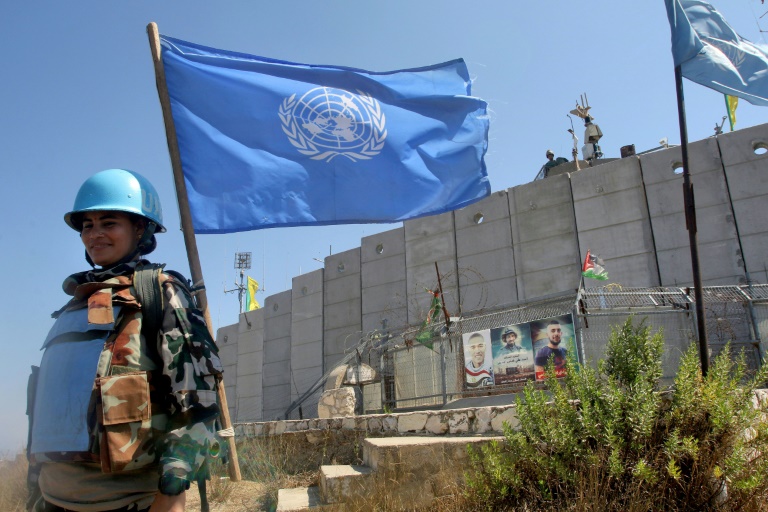UN renews Lebanon peacekeeping mission after dispute

The United Nations Interim Force in Lebanon — whose mandate was renewed on August 31, 2023 for another year — maintains a significant presence near the border between Lebanon and Israel
United Nations – The United Nations Security Council on Thursday renewed the mandate for its peacekeeping force in Lebanon for another year after tense debate around the troops’ freedom of movement.
The vote, which was originally scheduled for Wednesday but postponed for further negotiations, came only a few hours before the mission’s authorization was set to expire.
The United Nations Interim Force in Lebanon (UNIFIL), in place since 1978, is tasked with creating a buffer between Israel and Lebanon, which are technically at war.
Thursday’s resolution passed with 13 votes in favor and Russia and China abstaining, and keeps the force in place until August 31, 2024.
The mandate is largely identical to last year’s agreement on allowing freedom of movement for the approximately 10,000 peacekeepers stationed in the country, a point which has been contested both by the Lebanese government and the powerful pro-Iranian Hezbollah group.
The text “urges all parties… to ensure that the freedom of movement of UNIFIL in all its operations and UNIFIL’s access to the Blue Line in all its parts is fully respected and unimpeded.”
The so-called Blue Line refers to the frontier demarcated by the UN in 2000 after Israeli troops withdrew from southern Lebanon.
“UNIFIL does not require prior authorization or permission to undertake its mandated tasks and… UNIFIL is authorized to conduct its operation independently, while continuing to coordinate with the Government of Lebanon,” the text added.
UN Secretary-General Antonio Guterres has criticized UNIFIL’s inability to fully access certain areas, including sites belonging to a Lebanese environmental NGO which the United States has claimed is a front for Hezbollah activities.
The head of the powerful armed Shiite group, Hassan Nasrallah, earlier this week warned against renewing the 2022 UNIFIL terms.
“A foreign armed force that moves on Lebanese territory without authorization of the government and Lebanese army, without coordination with the Lebanese army, where is the sovereignty in all that?” Nasrallah said in a televised speech.
In a letter sent to the United Nations, the Lebanese government also called for a return to the 2021 terms of the force’s mandate, which placed less emphasis on the mission’s ability to move independently.
“(Thursday’s) text unfortunately did not reflect all of our concerns,” Lebanon’s UN representative Jeanne Mrad said.
“This freedom of movement should be upheld, yes, but also should involve controls,” she added.
Lebanese Prime Minister Najib Mikati nevertheless welcomed the mandate’s renewal.
The text “takes into account a key element requested by Lebanon, concerning the role of UNIFIL to operate ‘in coordination with the Lebanese government,'” he noted in a statement.
Israel said Thursday it “welcomes” the reauthorization.
“UNIFIL helps preserve stability in southern Lebanon,” the foreign ministry said. “We call on the international community to adopt a decisive attitude in the face of attempts by the Hezbollah terrorist organization to try to provoke and escalate (violence).”
UNIFIL was set up in 1978 to monitor the withdrawal of Israeli forces after they invaded Lebanon in reprisal for a Palestinian attack.
It was bolstered in 2006 after Israel and Hezbollah fought a 34-day war and is tasked with monitoring a ceasefire between the two sides.
Considered a “terrorist” organization by many Western governments, Hezbollah is the only side not to have disarmed following Lebanon’s 1975-1990 civil war, and it is also a powerful player in Lebanese politics.
